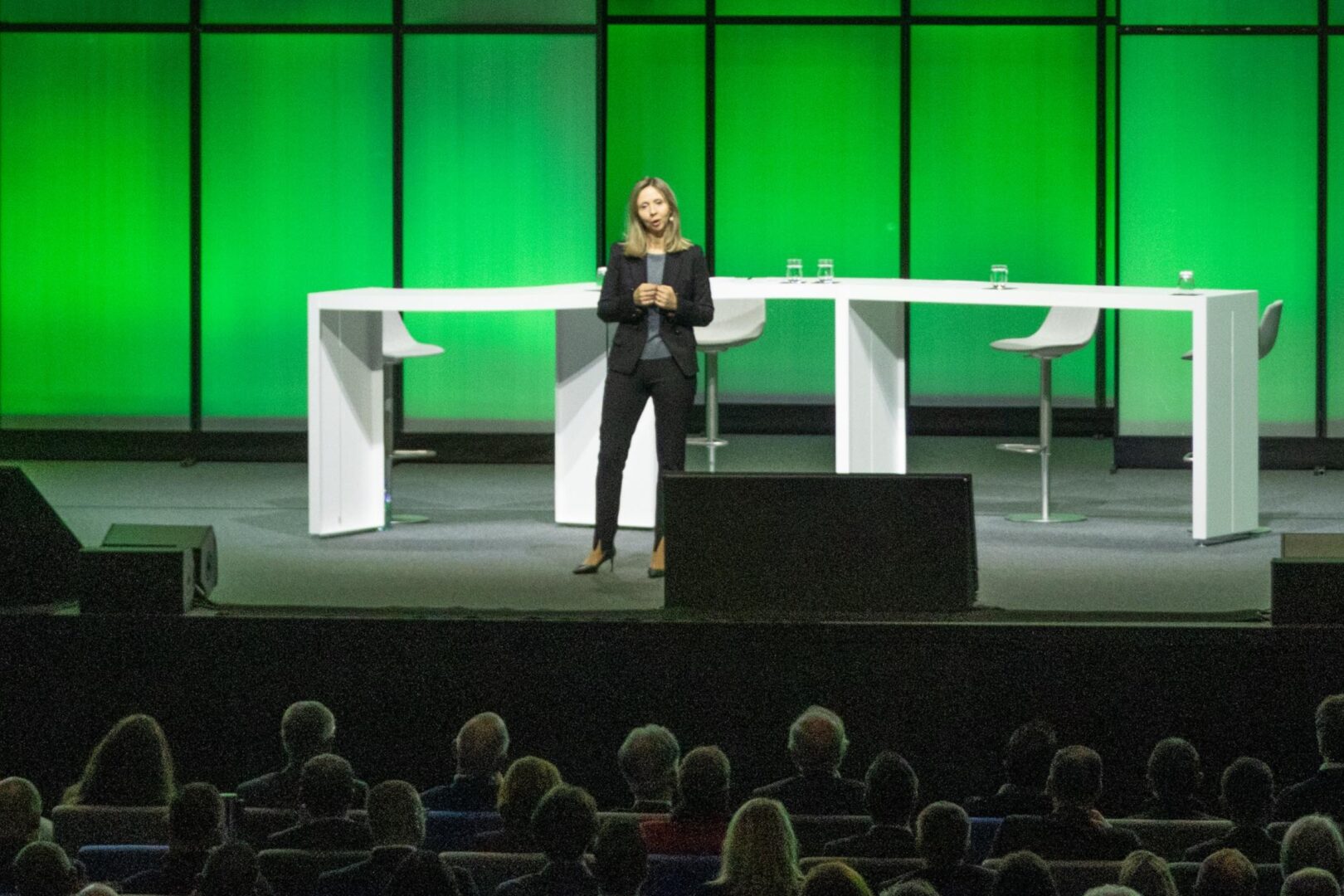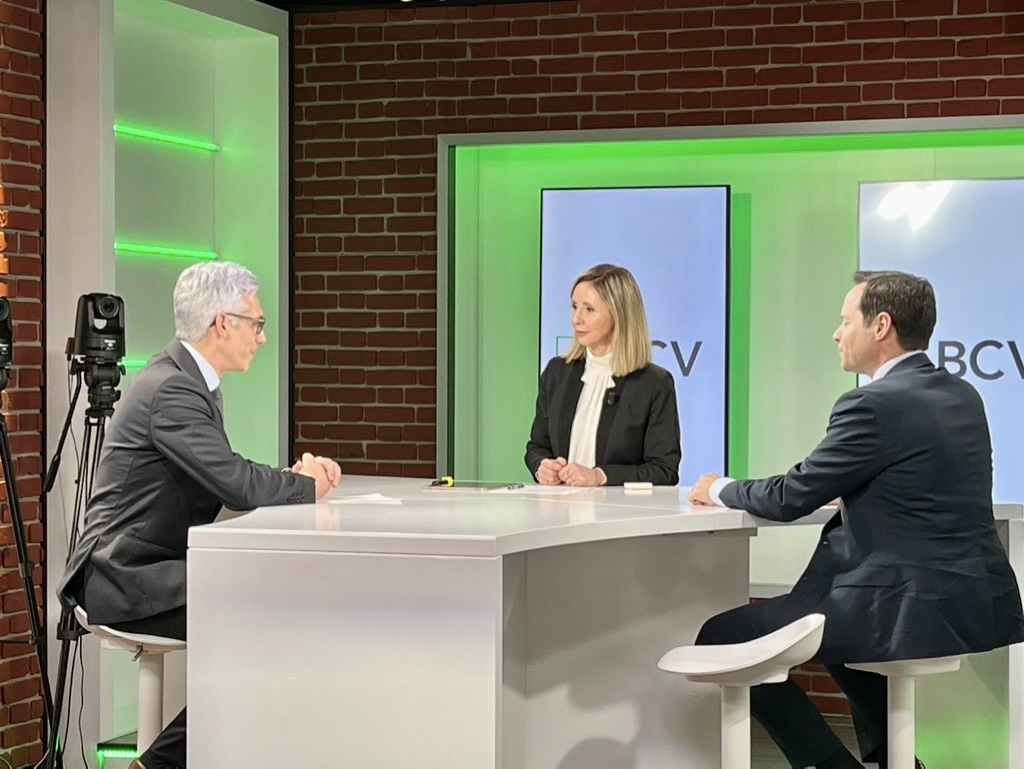
When Corinne Baffou started her leadership program, she felt she didn’t fit the typical student profile.
“I was 52 and much older than most of the other students. I am also not a particularly outgoing person, and I haven’t had, and don’t aim to have, an international career.”
Unlike many aspiring leaders who mull a career pivot to land a dream job, Baffou’s dream wasn’t to pursue greener pastures. “I love my job and want to stay in my company,” she said.
Yet she is now convinced that her distinctive profile is an asset and recognizes that there is no one-size-fits-all box marked ‘leader.’
“I may be different from the other participants in terms of background and profile, but through these differences, I was able to learn and grow from my peers, and I like to think conversely as well.”
Transitioning beyond middle management
A communications specialist with over three decades of work experience, Baffou started her career at Banque Populaire, a French banking group. She found her niche in corporate marketing and communications, working across industries ranging from advertising to luxury watchmaking. In 2010, she landed a communications officer role at Lausanne-headquartered bank Banque Cantonale Vaudoise (BCV) and has since risen through the ranks.

In April 2023, Baffou signed up for the Program for Executive Development (PED), a course that helps professionals transition into a business leadership/general management position. The highly personalized program comprises two phases, namely Foundations for Business Leadership (FBL), which takes place over 20 days, and Transition to Business Leadership (TBL), which comprises a series of modules over a month at the IMD campus.
She noted that the two phases of the PED program are complementary; while FBL focuses on hard skills, such as job-specific technical knowledge for value creation, TBL explores the development of leadership soft skills.
Baffou’s primary motivation for taking up PED was to broaden and strengthen her leadership skillset. “Currently, the BCV communications team has more than 30 staff, with a number of them in the creative field, such as photographers, web designers, and editors,” she said. “That’s a great strength for us, but it also means the team’s natural bent in terms of mindset is more creative and less analytical. I wanted to add some more structure and strategic discipline to the mix going forward.”
She was also keen to brush up on her relationship-building skills, particularly her engagement with C-suite executives. “My current role calls for me to be heavily involved in the development of communication tools for the company. Moving forward, I foresee a need to better engage the main stakeholders of the company – especially when it comes to helping them to create greater long-term business value by using a defined communication strategy,” she said.
Building an impactful leadership toolbox
Baffou ended the program armed with new leadership tools, such as the “Frame, explore, decide” approach, or FrED, a framework for developing and executing a project.
“FrED really helped me see my job through a structured prism. The framework is particularly relevant when it comes to dealing with my current challenges,” she said. “My vision is clearer, and my analysis of the issues and positions of stakeholders helps me guide and optimize my team’s value creation.”
The TBL phase also helped her to cultivate a growth mindset when navigating challenges. “A key learning was how important it was for leaders to deal positively with tension. Tension may be uncomfortable, but it can also be a good thing. What’s important is finding a way to manage the discomfort and adapt,” she said. “Only when you stretch out of your comfort zone and challenge yourself can you grow.”
This mindset shift was catalyzed in the psychologically safe environment built by Albrecht Enders, Professor of Strategy and Innovation, and Michael Watkins, Professor of Leadership and Organizational Change, co-directors of the TBL program. “They created a safe space for us to share our successes, failures, and doubts and get constructive feedback from our peers without fear,” she said.
A few weeks after the end of the TBL program, she was promoted to communications director. “Michael Watkins’ advice and book The First 90 Days was incredibly helpful,” she recalled. “For example, to diagnose the situation, I use the STARS model (an acronym for most common business situations) which allows me to adapt the strategy I develop in each specific situation.
“It’s also easier to manage challenges. I have confidence in my ability to embrace the uncertainty and complexity of our time and help my team to be able to function in this environment.”
In all, her PED experience offered her fresh leadership insights, including what makes an impactful leader. “As opposed to the traditional leadership perspective, where you ‘hide’ your feelings in the professional context, you’ve got to be willing to show your true self to others,” she said. “But as leaders, we need to stay true to ourselves. I don’t see being authentic as a vulnerability. It’s more like transparency. To be authentic, leaders must be transparent.”
An impactful leader, she added, is also one who is purpose-driven. “Purpose-driven leadership is more important than ever, not just for society but for people and the environment,” she said. “Leaders lead by example. They’re not just leading organizations but shaping the world. This is why they need to be acutely aware of their responsibilities. They should try to stay connected to their values so they can make a positive impact for their organizations.”

